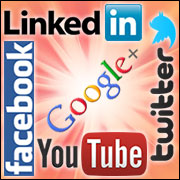
Evian ran a promotion to give away bottled water during August in New York. People had only to tweet using the hashtag #evianBottleService to get free water delivered to them on the streets.
To pull it off, Evian coordinated its social listening efforts and its marketing strategy — a valuable combination for brands that want to make use of what they hear online.
“Social listening is the ability to monitor activity on social networks, whether that be by setting up keywords to track, focusing on a specific hashtag or brand handles, or using listening as a channel for customer service,” explained Aaron Everson, cofounder and president of Shoutlet.
“Often, it’s all of the above and then some,” he told CRM Buyer. “It’s important for companies for a lot of reasons, and ultimately should inform a brand with actionable insights that are based on fan behavior.”
Inside Insights
Monitoring social media for mentions and hashtags does more than simply alert companies to potential crises that must be managed. It also gives insights into who customers are, what they’re thinking, and how the brand’s relationship with them can best be managed.
“With a smart social listening strategy, brands can get a real-time look at how they are perceived in the market by competitors, and by customers or potential customers, so they can both keep the momentum going or shift strategy to stay on course for positive sentiment,” said Everson.
The fact that social media encourages the sharing of information — positive and negative — makes it an invaluable source of feedback and insights. Active social listening makes sense of what people are saying and uses that information to enhance customer relations.
“People on social tend to be very candid. They share their experiences, both good and bad, very openly and very honestly. This is important when it comes to both crisis identification and social customer care,” said Everson.
“Brands are paying particular attention to how they listen for brand-related conversations, and building processes for when and how to respond,” he said, “in order to ensure the customer relationship remains positive and customers looking for a resolution to an issue receive it promptly.”
On social media, people tend to have public conversations that feel private — making them more honest, open and accessible than they would be in traditional kinds of focus groups.
“Consumers today are empowered to tell their experiences with brands in a very public way,” Peter Fontana, group research and insights director with We Are Social, told CRM Buyer. “Whether consumers tag a brand, use a hashtag, or simply mention the brand, social listening can help companies find and address customer service concerns, while also amplifying positive consumer experiences.”
Fine-Tuned Listening
People don’t always use predictable hashtags or mentions, so it’s important for brand managers to develop creative listening strategies.
“On Twitter, brands can use listening to be especially proactive in providing customer care,” Socialbakers CMO Neil Morgan told CRM Buyer. “Twitter users might tweet something out about a customer service issue they have without tagging the brand’s Twitter account. Brands can actively use listening to identify tweets mentioning the brand’s name, even if their page isn’t tagged — or to identify keywords that might bring up tweets they’d like to respond to.”
Another approach to active social listening involves looking for unhappy customers of other brands — and then offering them alternative solutions.
“A number of telecom companies have used listening to identify tweets from unhappy customers of other telecom providers, and have taken the opportunity to use the customer’s dissatisfaction with their competitor as a way to make an introduction,” noted Morgan.
Tools and Platforms
Some brands choose a DIY approach to social listening, relying on basic analytics and alerts to keep abreast of what’s happening on social media. An increasing number of tools have been designed specifically to help businesses with the daunting task of social media monitoring.
“Shoutlet offers a pretty powerful social CRM tool that allows [a brand] to design its own community management home page, or hub, that looks at activity across a variety of networks side-by-side,” said Everson.
“Its real-time feed helps brands actively listen and stay on top of who is saying what, when, and where, and gives community managers the ability to respond to specific fans/posts, or assign that as a task to a team member within that same hub, never having to navigate away from the interface.”
Some offerings focus on making sense of the data that’s out there, particularly in terms of the overall social context.
“We provide our clients with the ability to track keywords that are important to them in the context of their brand,” said Socialbakers’ Morgan. “A big focus of ours is on providing companies with competitive intelligence, so we can put insights you gain from listening into the context of what comparative companies are seeing.”
Other platforms, like that offered by Sprinklr, seek to bring social listening insights together with data and information from a wide range of sources, giving brands a comprehensive view not just of social trends but of business trends as a whole.
“We try to bring it all together,” Ali Ardalan, director of strategy for Sprinklr, told CRM Buyer. “We want you to analyze the information and get a comprehensive view.”
The ultimate goal, perhaps, is to use social listening to predict trends and see into the future — giving brands an advantage when they’re putting together their marketing, response and sales strategies.
“The key to the future of listening is to turn it into real measurement as a metric of social performance,” said Fontana. “We aim to do this by connecting social metrics with the context provided by listening. This will provide the most effective way of anticipating trends and crises. In other words, listening will enable marketers to see around corners.”
























































I do many things mentioned in this article every day, as a part of my job. I highly recommend Mediatoolkit, a social media listening tool. It’s really reliable, as it finds all mentions of your keywords in under 5 minutes and gives great analytic reporting, and it’s free to use for a keyword or two.